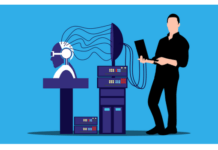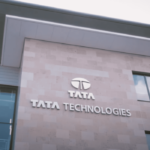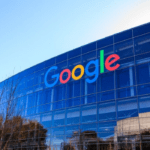According to Accenture – global technology trends report, companies that equip employees, partners and consumers with new skills can fully capitalise on innovations.
In the digital economy, technology advancement is happening at break necking speed. It is expected to disrupt the workforce to a large extent. It is said that robots and intelligent machines would replace humans. Having said so, it is also said that companies who keep people first and reskill their employees will be the real winners.
According to Accenture – global technology trends report, companies that equip employees, partners and consumers with new skills can fully capitalise on innovations.
Paul Daugherty, Accenture’s chief technology officer, says, “Digital means people too and a cornerstone of this year’s Vision is people first. Companies that embrace digital can empower their workforce to continuously learn new skills to do more with technology and generate bigger and better business results.”
According to Accenture, businesses which adopt a people-first approach will be able to create new business models that drive digital disruption.
For instance, GE established a new approach called FastWorks that connected employees much more closely to customers and ultimately led to the rapid development of innovative solutions that sold well because they met and exceeded customer expectations.
Additionally, Virgin America, the only airline based in Silicon Valley and the highest rated, has gone so far as to collaborate with its frequent flyers, returning customer loyalty with stock options before the company went public.
Accenture has predicted five technology trends which when fuelled by the people first can turn into business success in the digital economy.
Intelligent automation
Intelligent automation is the launching pad for new growth and innovation. Powered by artificial intelligence (AI), the next wave of solutions will gather unprecedented amounts of data from disparate systems and—by weaving systems, data, and people together—create solutions that fundamentally change the organisation, as well as what it does and how it does it.
Leaders are embracing automation – powered by artificial intelligence (AI), robotics and augmented reality – to fundamentally change the way their business operates and drive a new, more productive relationship between people and machines. Significant investments are well underway with 70 per cent of survey respondents acknowledging increased AI-related technology investments compared to two years ago, and 55 per cent revealing that they plan on using machine learning and embedded AI solutions such as IPsoft Amelia extensively.
Liquid workforce
By exploiting technology to enable workforce transformation, leading companies will create highly adaptable and change-ready environments that are able to meet today’s dynamic digital demands. The competitive advantage offered by a liquid workforce is apparent as survey respondents indicated that “deep expertise for the specialized task at hand” was only the fifth-most-important characteristic they required for employees to perform well in a digital work environment. Other qualities such as ‘the ability to quickly learn’ or ‘the ability to shift gears’ were ranked higher.
Companies are investing in the tools and technologies they need to keep pace with constant change in the digital era. But there is typically a critical factor that is falling behind: the workforce. Companies need more than the right technology; they need to harness that technology to enable the right people to do the right things in an adaptable, change-ready, and responsive liquid workforce.
Platform economy
Industry leaders are unleashing the power of technology by developing platform-based business models to capture new growth opportunities, driving the most profound change in the global macroeconomic environment since the Industrial Revolution. This is reinforced by 81 per cent of our survey respondents who agree that platform-based business models will become part of their organization’s core growth strategy within three years.
Predictable disruption
Fast-emerging digital ecosystems are creating the foundation for the next wave of disruption by straddling markets and blurring industry boundaries; forward-thinking leaders can proactively predict these ecosystem trajectories to gain a competitive advantage. Companies are already significantly or moderately experiencing ecosystem disruption, with 81 per cent of survey respondents indicating that they are seeing this in their industry.
Digital Trust
Trust is a cornerstone of the digital economy, said 83 per cent of survey respondents. To gain the trust of individuals, ecosystems and regulators in this new landscape, businesses must focus on digital ethics as a core strategy; better security alone won’t be enough.
Accenture surveyed more than 3,100 business and IT executives worldwide for the Technology Report 2016.
Value our content... contribute towards our growth. Even a small contribution a month would be of great help for us.
Since eight years, we have been serving the industry through daily news and stories. Our content is free for all and we plan to keep it that way.
Support HRKatha. Pay Here (All it takes is a minute)




































